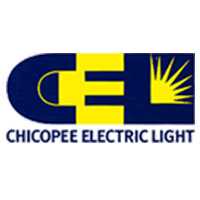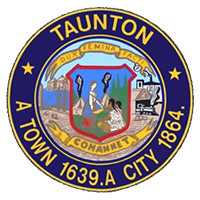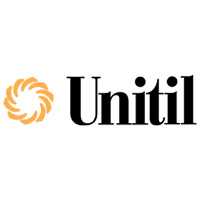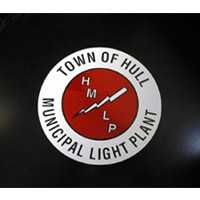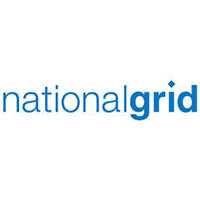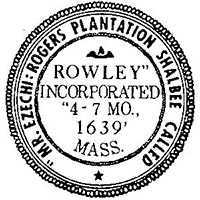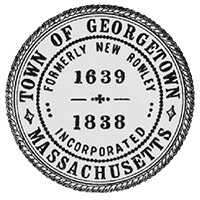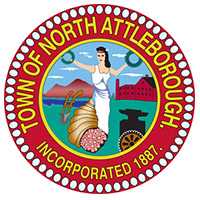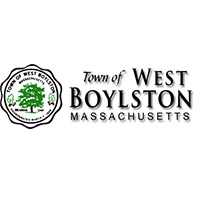Breaking News
The new Massachusetts SMART solar incentive scheme to replace the SREC 2 scheme now released. See details of incentive levels now available.
Solar power in Massachusetts
Although Massachusetts has fewer daily sun hours compared to other parts of the country, the state’s high utility power costs make solar a great investment for the home.
Massachusetts offers numerous incentives for going solar, including the residential renewable energy income tax credit which provides up to $1,000 of credit towards your state income tax. This, coupled with the federal tax credit, makes going solar a viable option for Massachusetts homeowners.
As part of the state’s Renewable Portfolio Standard (RPS), Massachusetts set a specific goal for electricity generation from solar panels, otherwise known as a solar carve out, in 2008. The solar carve out served as support for a solar renewable energy credit (SREC) market.
In late 2018, applications for the SREC program ceased and a new program, the Solar Massachusetts Renewable Target (SMART) Program, began. The SMART program no longer uses SRECs to incentivize solar. Instead, homeowners are offered a fixed rate for each kWh of power their system provides to the grid for 10 years.
You can install high-quality solar power systems from reputable installers as low as $2.82 per watt before incentives. With these prices, the payback period could be as little as 5 years or less and have an internal rate of return on investment of over 20%.
Compare solar quotes from the top solar companies in Massachusetts
Massachusetts solar power facts
$2.82 watt
Average cost: 5kW solar power system
?2 Years 8 Months
Average payback time
$131,212
Average lifetime savings
?7¢ kWh
Levelized cost of solar energy
55¢ kWh
If you don't get solar
?9,254 kWh
Annual power production
Cash flow graph based on cash purchase of a 8.2kW system
This 8.2kW system would offset 100% of your energy usage if your typical monthly bill in Massachusetts is $236, however, your situation may vary so try our solar calculator to get a result tailored to you.
1
Solar companies in Massachusetts that provide pricing through the SolarEstimate marketplace.
How much can solar panels save you in Massachusetts
Average total cost of solar panel installation in Massachusetts
| System Size | Cash purchase After 26% solar tax credit |
Financed purchase After 26% solar tax credit |
|---|---|---|
| 3kw | $6,460 | $6,977 |
| 4kw | $8,495 | $9,175 |
| 5kw | $10,434 | $11,269 |
| 6kw | $12,343 | $13,331 |
| 7kw | $14,141 | $15,273 |
| 8kw | $15,925 | $17,199 |
| 9kw | $17,582 | $18,989 |
| 10kw | $19,240 | $20,779 |
How much do solar panels cost in Massachusetts?
$2.82 per watt
Cash purchased solar system
Before 26% solar tax credit
$3.18 per watt
Financed solar system
Before 26% solar tax credit
$16.5¢ /kWh
Lease/PPA
Ave 15 year term, 2.5% price escalator
What are the pros and cons of installing solar panels in Massachusetts?
Some of the advantages of installing solar panels in Massachusetts include state incentives, the federal tax credit, and the expensive power rates. Higher power rates mean the overall return on investment for an installation of residential solar panels in Massachusetts is the best in the nation.
SolarPowerRocks provides a great breakdown of solar incentives and policy for each state within the US.
What's the downside of installing solar panels in Massachusetts? There is a lower level of emitted solar irradiance. As a result, solar systems in the state produce less energy than they could if stationed in other areas. However, the local incentives more than make up for this.
If you’re a Massachusetts homeowner, you’ll be kicking yourself that you didn’t install solar panels while these generous incentives were still around.
Enter your details to calculate the potential costs and savings for installing solar panels on your home.
Best solar companies in Massachusetts
Compare solar quotes from the top solar companies in Massachusetts
Best brands of solar panels
To find the best brands of solar panels you can use America's most trusted solar panel comparison and reviews website, SolarReviews.
However, reviews of solar panels can be a bit meaningless because most consumer owners have not had any issues and so while solar company reviews are very important when choosing solar installers they are of less use when choosing solar panels.
For more information to help you make an informed decision about this topic, I would recommend this article about buying solar panels.
How much electricity will solar panels produce in Massachusetts
Solar panels produce different amounts of energy in different locations.
Around the Boston area solar panels installed on a south-facing 27-degree pitch roof will typically produce:
1,150kWh
per year per 1kW of peak DC
(direct current) capacity
For more information about how your location, roof direction, and roof tilt affects solar power production use the solar panels calculator and enter your zip code.
I want to buy a solar panel kit and install it myself
What rebates, solar tax credits and other solar incentives are available in Massachusetts?
Massachusetts State Solar Tax Credit
Massachusetts has an excellent tax credit incentive that can be used in addition to the 26% federal solar tax credit.
The Massachusetts state solar tax credit provides a credit equal to 15% of the total cost of a renewable energy system installed on your primary residence. However, the credit may not exceed $1,000.
Tax exemptions
Massachusetts offers two tax exemptions for solar systems: a sales tax exemption and a property tax exemption.
Under the renewable energy equipment sales tax exemption, equipment related to any solar system for the purpose of supplying energy is not subject to state sales tax.
The renewable energy property tax exemption exempts the assessed value of a solar system from a homeowner’s property tax for a 20-year period.
The SMART Program and Massachusetts RPS
Massachusetts has a renewable energy target that has mandated utilities operating in the state to obtain a certain percentage of their electricity from renewable sources.
By December 31, 2019, utilities must derive 14% of their sales from renewable energy sources. For each following year, the required percent derived from renewable energy will increase by 1%.
In late 2018, the state’s popular SREC program was replaced with the SMART program. Under SMART, your utility pays a flat base rate per kWh of energy that is sent to the grid from your solar system for 10 years. The base rate you qualify for is dependent on your utility and when you apply to the program. The sooner you apply, the higher the base rate you receive.
You can also qualify for different “adders”, which is additional money you can earn per kWh if your system meets certain requirements. For example, if a system is built on a brownfield, the system owner can earn an additional $0.03 per kWh on top of their base rate.
Mass Solar Loan Program available to Massachusetts residents
In January 2015, the Massachusetts Department of Energy Resources (DOER) and the Massachusetts Clean Energy Center (MassCEC) launched the Mass Solar Loan Program, a $30 million residential loan program to make it easier for homeowners to finance solar projects. The program provides low-interest loans for the purchase and installation of solar systems.
For official requirements and qualifications to receive a loan, click here.
Is a purchase, lease, or power purchase agreement (PPA) best?
Solar leases and solar PPAs are popular financing options that are ideal for many homeowners who are considering solar. They make the installation of a solar system possible, without the upfront costs associated with installation and maintenance.
However, generally speaking, you will see far greater savings over the life of a system if you purchase your solar panels outright rather than enter into a third party-owned solar lease or solar PPA. You also will not be able to redeem the 26% federal tax credit.
You can use the solar savings calculator to see the difference in the overall savings over the life of a system.
Also see:
Massachusetts Solar Calculator
Regardless of what you want to know about the economics of installing solar panels for your home or business in Massachusetts, we have a solar calculator that can show you exactly the information you require.
What you can find out about installing solar panels in Massachusetts using our full monthly solar calculator
This solar calculator requires you to input your address, utility company, your average monthly power spend - It tells you:
- What size solar system do you need?
- Answers the question of How many solar panels do I need?
- How many square feet of roof space you need for solar panels
- Solar electricity production in annual kWh (kilowatt-hours) you can expect from your solar system in Massachusetts
- The value of solar tax credits and other incentives you are entitled to based on the estimated size of system you need, your location and your utility provider.
- Likely cost based on an average of prices charged for solar systems of that size in the last year in Massachusetts or Boston ;
- The likely payback period on your solar panels and your investment return.
- Your total lifetime solar savings based on each of the major solar finance options, a cash purchase, a cash purchase funded with a HELOC sol (home equity line of credit) and a zero-down PPA or third party lease product.
If you want to see all of the above but also see live pricing, the three best solar deals available in your city and get binding quotes from each of these solar companies then use this Massachusetts solar panels calculator. This calculator requires you to also input your name and contact details because most of our 200+ installer partners will only authorize the sharing of their live solar pricing where we have validated that you are a real homeowner with a home in their service area. We respect the privacy of your data and only share your contact details with the solar companies you ask us to get binding quotes from.
Going solar in Massachusetts
Check out all of the ways energy providers of Massachusetts can help you be more energy-efficient and save money.
The following programs are available:
| Incentive Name | Eligibility | Type |
|---|---|---|
| Residential Renewable Energy Tax Credit | Federal | Personal Tax Credit |
| Residential Renewable Energy Income Tax Credit | State | Personal Tax Credit |
| Transitional SRECII program (expired) | State | SREC II program transitioning to SMART program |
| Renewable Energy Property Tax Exemption | State | Property Tax Incentive |
| Renewable Energy Equipment Sales Tax Exemption | State | Sales Tax Incentive |
| Solar Massachusetts Renewable Target (SMART) Program | State | Rebate Program |
| Chicopee Electric Light - Residential Solar Rebate Program | Utility | Rebate Program |
| Concord Municipal Light Plant - Solar Photovoltaic Rebate Program ($625 per kw AC converters to $550 per Kw DC: conversion may vary) | Utility | Rebate Program |
| Taunton Municipal Lighting Plant - Residential PV Rebate Program | Utility | Rebate Program |
| Hudson Light & Power - Photovoltaic Incentive Program | Utility | Rebate Program |
| Municipal Light Plant Solar Rebate | Utility | Rebate Program |
Find your local rebates and incentives
Your city may have further incentives to offer. Please keep in mind that the best source of up-to-date information on incentives is the solar installers who specialize in your area.
